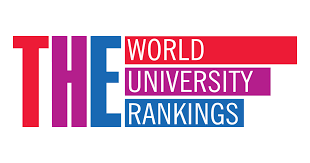Times Higher Education Ranking
Netherlands drops, UU goes up a few positions

According to the British ranking, ten Dutch universities are still among the best two hundred in the world. Only five countries have more universities in the top two hundred than the Netherlands: the United States, the UK, Germany, Australia and China, which is surpassing the Netherlands for the first time.
The wide-ranging assessment includes academic performance, reputation in education and research, internationalisation, the number of students per lecturer and collaboration with the corporate sector.
Wageningen is the front runner
The best Dutch university according to this ranking is Wageningen University & Research, which appears at number 59. That's a drop of six places compared to last year. Four universities have moved up the rankings: the University of Amsterdam, Utrecht University, Delft University of Technology and the University of Groningen.
|
Universiteit |
2023 |
Vorig jaar |
Stijgen/dalen |
|
Wageningen |
59 |
53 |
↓ |
|
UvA Amsterdam |
60 |
65 |
↑ |
|
Utrecht |
66 |
69 |
↑ |
|
TU Delft |
70 |
=75 |
↑ |
|
Groningen |
75 |
=80 |
↑ |
|
Leiden |
77 |
71 |
↓ |
|
Erasmus Rotterdam |
80 |
72 |
↓ |
|
VU Amsterdam |
121 |
115 |
↓ |
|
Radboud Nijmegen |
=139 |
139 |
− |
|
Maastricht |
145 |
=127 |
↓ |
|
TU Eindhoven |
201–250 |
201–250 |
− |
|
Tilburg |
251–300 |
201–250 |
↓ |
|
Twente |
251–300 |
201–250 |
↓ |
© HOP. Bron: Times Higher Education World University Rankings 2023.
© HOP. Bron: Times Higher Education World University Rankings 2023.
The list of Dutch universities classified according to their positions in this year's rankings, and then compared to last year's rankings.
The top ten consist exclusively of British and American universities. At the very top is the British University of Oxford, which tops the list for the seventh year in a row, followed by Harvard University in the United States. Switzerland’s ETH Zurich takes eleventh place and the highest-ranked Chinese institution (Tsinghua University) occupies the sixteenth spot.
Danger
But rankings like these are taken by some with a grain of salt. Some say they encourage universities to narrow their focus to aspects that are likely to improve their score. In the past, some Dutch universities have even toyed with the idea of a merger, partly because pooling their resources would earn them a higher ranking.
The criteria used to rank the universities are not without controversy either. The internationalisation of staff and students, for example, is considered a plus, yet there are many critical voices in the Netherlands against the unbridled influx of foreign students and the growing influence of English on education.
Furthermore, citations of scientific articles count for 30 percent of the score. This means that researchers are judged by articles that score well among their peers. The use of citation scores like these is now generating considerable resistance, with many arguing that research should be assessed along different lines.